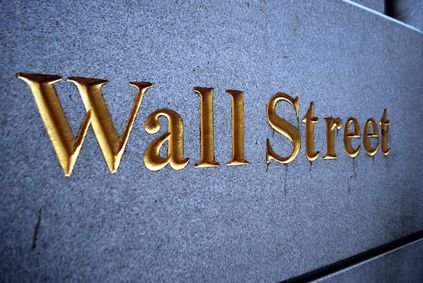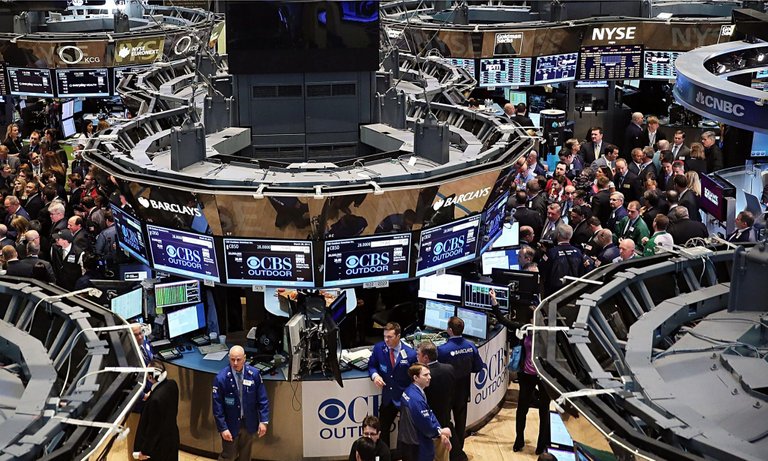
Les Bourses de valeurs ou marchés financiers sont des lieux où s'échangent différents produits financiers, parmi ceux-ci les plus connus sont les actions et les obligations. Nous verrons plus tard qu'il existe une multitude d'autres produits (options, warrants, bons de souscription...) dont le nombre n'est limité qu'à l'imagination des financiers.

La Bourse joue le double rôle d'être à la fois un lieu de financement pour les entreprises, les états ou les collectivités (émission d'actions ou d'obligations) mais également un lieu de placement (investisseurs).
C'est pour cette raison que le marché boursier est scindé en deux sous marchés qui sont respectivement le marché primaire et le marché secondaire.
Le rôle du marché primaire est d'organiser la rencontre de sociétés cherchant à financer leur développement et des détenteurs de capitaux (on peut faire un parallèle entre le marché primaire et le marché du neuf).
Le marché secondaire tient plutôt le rôle du marché de l'occasion où les différents intervenants peuvent s'échanger les titres, c'est ce marché qui est bien sur le plus actif puisqu'il s'échange des milliards d'euros par jour à la bourse de Paris.
La bourse joue un rôle primordial dans l'économie contemporaine, les entreprises y trouvent une partie des capitaux nécessaires à leur expansion tandis que l’État y finance le déficit de ses comptes.
À l'origine, la Bourse était un marché supposé ouvert à quiconque souhaitait vendre ou acheter; la Bourse de Paris fut certainement érigée dans cet esprit, et siégea dans un édifice construit aux frais du public. Mais bientôt, on réalisa que pour homologuer ces contrats, il fallait un organisme officiel.
C'est ainsi que les personnes autorisées à exercer en Bourse furent limitées à certaines catégories d'opérateurs, ce sont les sociétés de bourse qui sont aujourd'hui les intermédiaires obligés pour opérer en bourse. En effet un particulier ne peut pas intervenir directement sur le marché, il doit obligatoirement transmettre ses ordres à un intermédiaire financier (société de bourse, établissement financier).
Au contraire des marchés de gré à gré sur lesquels les échanges s'effectuent par accord bilatéral entre un acheteur et un vendeur, la bourse est un marché réglementé qui organise:
La liquidité, c'est à dire la facilité des échanges par la concentration du plus grand nombre possible d'ordres d'achat et de vente.
L'égalité entre tous les intervenants par la transparence et l'accès instantané au marché.
La sécurité, par la garantie que les acheteurs seront livrés et les vendeurs payés à date déterminée.
Enfin, la bourse en tant qu'instrument de placement, permet aux particuliers de devenir les associés des plus grandes entreprises privées industrielles et commerciales par le biais des actions. Elle permet aussi de devenir les créanciers de ces sociétés et de collectivités publiques comme l’État et les grandes entreprises nationales en achetant des obligations.
//
Stock exchanges or financial markets are places where different financial products are exchanged, among which the most well-known are stocks and bonds. We will see later that there are a multitude of other products (options, warrants, warrants ...) whose number is limited only to the imagination of the financiers.
The Bourse plays the dual role of being both a place of financing for companies, states or communities (issuing shares or bonds) but also a place of investment (investors).
It is for this reason that the stock market is split into two sub-markets, the primary market and the secondary market, respectively.
The role of the primary market is to organize the meeting of companies seeking to finance their development and capital holders (a parallel can be drawn between the primary market and the new market).
The secondary market is rather the role of the opportunity market where the different players can exchange the securities, it is this market which is of course the most active since it exchanges billions of euros per day On the Paris stock exchange.
The stock market plays a vital role in the contemporary economy, where companies find a share of the capital needed for their expansion while the State finances the deficit in its accounts.
Originally, the Bourse was a supposed market open to anyone who wanted to sell or buy; The Paris Bourse was certainly erected in this spirit, and sat in an edifice built at the expense of the public. But soon, it was realized that to approve these contracts, an official body was needed.
Thus, the persons authorized to trade on the stock exchange were limited to certain categories of traders, it is the brokers who are today the intermediaries forced to trade on the stock market. Indeed, an individual can not intervene directly in the market, he must obligatorily transmit his orders to a financial intermediary (brokerage firm, financial institution).
Unlike OTC markets on which trade is carried out by bilateral agreement between a buyer and a seller, the stock exchange is a regulated market which organizes:
Liquidity, ie the ease of trading by concentrating as many buy and sell orders as possible.
Equality among all stakeholders through transparency and instant access to the market.
Security, by guaranteeing that buyers will be delivered and sellers paid by date.
Finally, the stock market as an investment instrument enables individuals to become associates of the largest private industrial and commercial companies through equities. It also makes it possible to become the creditors of these companies and public authorities such as the state and large domestic companies by buying bonds.